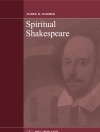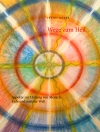Nostromo, a Tale of the Seaboard — Joseph Conrad — Joseph Conrad, who knew the human nature inside out, telling the story of Nostromo and portraying his personages is ironic and even slightly derisive…
Every man, somewhere deep inside, has his own share of rascality… And every human doing has two sides…
Action is consolatory. It is the enemy of thought and the friend of flattering illusions. Only in the conduct of our action can we find the sense of mastery over the Fates.
The events take place in the South American country of Costaguana, which is being torn with greed, political ambitions, poverty and revolutions…
They had stopped near the cage. The parrot, catching the sound of a word belonging to his vocabulary, was moved to interfere. Parrots are very human.
‘Viva Costaguana!’ he shrieked, with intense self-assertion, and, instantly ruffling up his feathers, assumed an air of puffed-up somnolence behind the glittering wires.
There always are pushers and those who are pushed…
In all these households she could hear stories of political outrage; friends, relatives, ruined, imprisoned, killed in the battles of senseless civil wars, barbarously executed in ferocious proscriptions, as though the government of the country had been a struggle of lust between bands of absurd devils let loose upon the land with sabres and uniforms and grandiloquent phrases. And on all the lips she found a weary desire for peace, the dread of officialdom with its nightmarish parody of administration without law, without security, and without justice.
One day the pushed ones grow tired of being cat’s paws and rebel… Some outwardly, some inwardly… But anyway, in the end they turn out to be the ones who pay for their rebellion.
Об авторе
Joseph Conrad (born Teodor Józef Konrad Korzeniowski, 3 December 1857 3 August 1924) was a Polish-born novelist. Some of his works have been labelled romantic: Conrad’s supposed ‘romanticism’ is heavily imbued with irony and a fine sense of man’s capacity for self-deception. Many critics regard Conrad as an important forerunner of Modernist literature. Conrad’s narrative style and anti-heroic characters have influenced many writers, including Ernest Hemingway, D.H. Lawrence, Graham Greene, Joseph Heller and Jerzy Kosinski, as well as inspiring such films as Apocalypse Now (which was drawn from Conrad’s Heart of Darkness).












